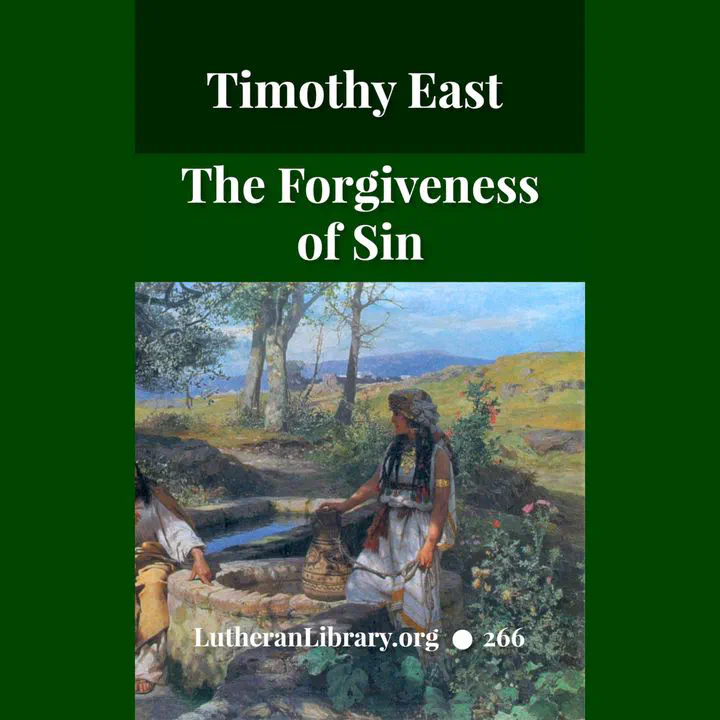The Forgiveness of Sin: And the Possibility of Attaining a Personal Assurance of it by Timothy East
29 Sep 2022··
2 min read
Timothy East

Timothy East’s practical book is intended to, “disturb the false peace of the criminally indifferent… impart consolation to the conscientiously fearful, (and to) excite to higher degrees of gratitude the comparatively few, who know that they are safe for eternity.”
Timothy East (1817-1892) was the writer of the famous “Evangelical Rambler”, later republished under the title “The Sheepfold and the Common.”
Level of Difficulty: Primer: No subject matter knowledge needed.
Book Contents
- Preface.
- Introduction.
- Chapter 1. The Believer’s Salvation Absolutely Certain.
- The Authority of God’s Word.
- Why Wouldn’t Salvation Be Made Absolutely Certain?
- A Defective Theory of Redemption
- Chapter 2. Knowledge of the Forgiveness of Sin.
- Chapter 3. Defense of Those Who Have Or Seek Assurance.
- The Charge of Fanaticism
- Repelling the Charge
- Chapter 4. Conclusion.
- An appeal to those who possess a knowledge of the remission of their sins, and an assurance of their eternal salvation.
- A. Gratitude
- B. Be not high minded.
- C. Hold fast your profession.
- D. Be considerate, and kind to others.
- E. Anticipate with gratitude and joy, the end of your faith.
- An appeal to those who admit the possibility of attaining a knowledge of the actual remission of their sins, and the certainty of their salvation: but who have not yet attained it.
- A. The causes, to which its non-attainment may be attributed.
- B. There are many intimations in the word of God, which evidently imply, that it is the duty of believers to labor after the highest attainments in knowledge and in grace.
- An appeal to those professors of the Christian faith, who think that no one, during his residence on earth, can attain a knowledge that his sins are forgiven, and that his salvation is absolutely certain.
- A. Suppose I admit this opinion to be a correct one, I would ask, if it be possible to find language sufficiently strong to express the deep and pungent sorrow which it ought to occasion to every man who believes in the divine origin of the Christian revelation.
- B. Ought any professor of the Christian faith to hold such an opinion, unless it be forced on him by a weight of evidence which he cannot withstand?
- C. Whether the adoption of such an opinion does not tend to allay all anxiety on the question of personal security and salvation.
Publication Information
- Lutheran Library edition first published: 2021
- Copyright: CC BY 4.0